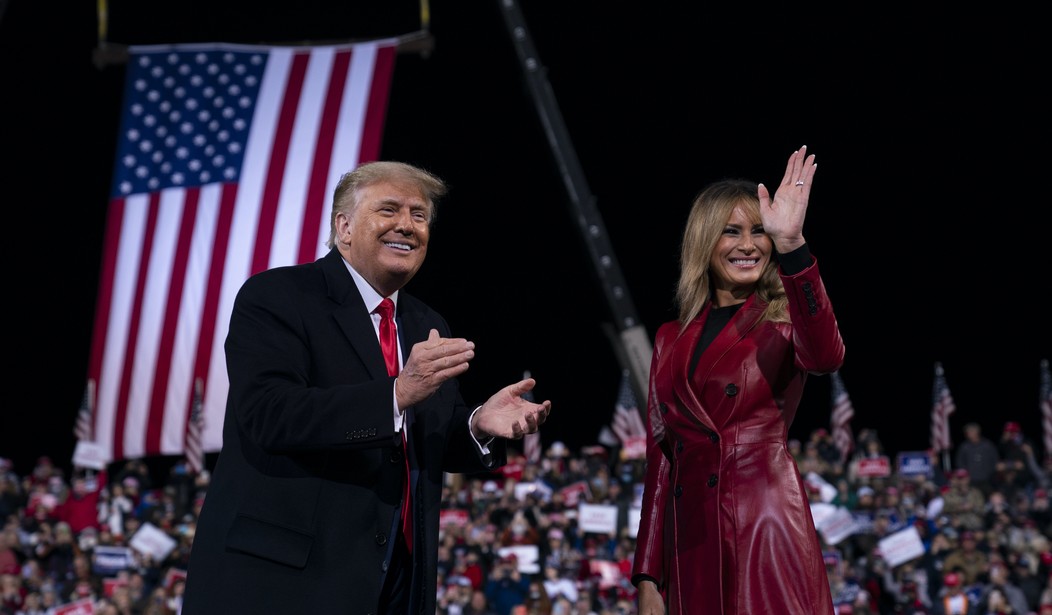Former President Donald Trump has begun making waves in the Republican Party with a slew of endorsements and statements. The president-turned-kingmaker has given his blessing to several non-establishment candidates seeking office or re-election.
The Hill noted that Trump “is also sending signals to allies that he can protect them from primary challenges next year, a potentially strong incentive for fellow Republicans not to discard his legacy.”
Jim McLaughlin, a GOP strategist, told The Hill, “it’s a great preemptive thing to put off any potential challengers.” He also pointed out that the former president has a “very good relationship” with Sen. Rick Scott (R-FL), who heads the Senate GOP’s campaign arm.
According to The Hill, the strategist also noted that Trump’s increasing involvement in the 2022 election cycle would “send a message to Republicans that ‘they need to fight against’ Biden’s agenda, which aims in large part to dismantle the previous administration’s policies.”
The Hill noted:
Some GOP senators, like Sens. Susan Collins (Maine), Lisa Murkowski (Alaska) and Mitt Romney (Utah), say they want to work with Biden. They were part of a group that met with the president in early February to explore a compromise coronavirus relief package. But Biden quickly dismissed their proposal as being insufficient.
In the end, not a single congressional Republican voted for Biden’s $1.9 trillion American Rescue Plan.
Establishment GOP lawmakers seem to believe that now that Trump is out of office, they can also work against some of the policies he implemented, particularly his approach to trade and foreign policy.
However, other GOP lawmakers seem to view Trump’s new kingmaker role as a possible advantage for their political careers. Sens. Ron Johnson (R-WI), Marco Rubio (R-FL), Rand Paul (R-KY) have each received Trump’s blessing.
Others, like Sen. Lisa Murkowski (R-AK), are skeptical of a GOP that bears Trump’s fingerprints. “If the Republican Party continues to be the party of Trump, I’m not quite sure where I fit,” she said in January.
Senate Minority Leader Mitch McConnell (R-KY) broke with Trump after the election and has refused to speak with him since. In February, he criticized the former president for supposedly inciting his supporters to riot at the U.S. Capitol building on Jan. 6.
Trump has been communicating with his followers and the Republican Party through statements released from his post-presidential office and Save America, his political action committee, which has raised about $85 million, which will be used to back allies and Republican candidates who are challenging the establishment.
The former president’s activities after the election have already highlighted a growing rift in the Republican Party. Many establishment elites are hard at work trying to bring the party back to its pre-Trump days while the non-establishment seeks to take the party in a different direction. The conflict will determine the trajectory of the GOP in the coming years.
As it stands currently, it does not appear that the establishment will succeed in returning the GOP back to its “glory days.” The base, which voted in part for Trump to shatter the establishment elite’s grasp on the party, will not tolerate a Romney 2.0 party. Already, activists on the right are targeting leaders like Sens. Adam Kinzinger (R-IL), and Liz Cheney (R-WY).
Of course, this isn’t to say that the establishment will be eliminated entirely. While the non-establishment wing is likely to take power, the McConnell types will still have a voice. But if the America First faction manages to dominate, it will represent a significant paradigm shift. The question is: What will the future of the party look like when the establishment no longer holds sway?













Join the conversation as a VIP Member